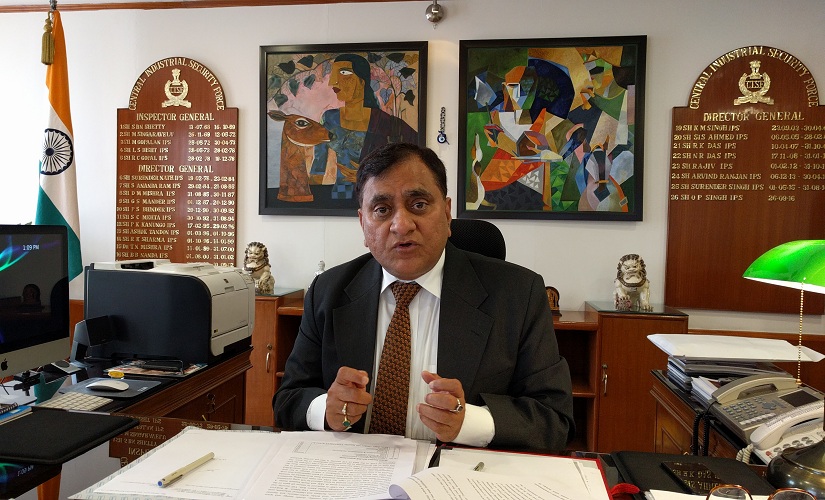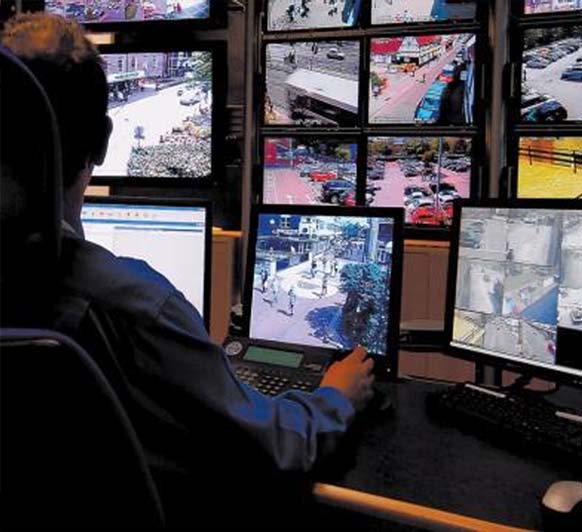
Login Into Your Account

Reset Password
Law enforcement Technology,Law enforcement Agency,Policing Technology,Smart Policing India,Homeland Security India,Border Security India,Border Management India,Cyber Crime news,Cyber Security news,Safety App,Public Safety App,Security App,Women Safety App,Police Initiative,Surveillance news,National Security news,isc event 2016,isc event 2017,scada event 2016,scada event 2017,Critical infrastructure security event 2016,Critical infrastructure security event 2017,iot summit 2016,iot summit 2017,Internet of things seminar 2016,Internet of things seminar 2017,iot seminar delhi 2016,iot seminar delhi 2017,iot conference delhi 2016,iot conference delhi 2017,top security event,security event,security event 2016,security event 2017,security conference 2016,security conference 2017,cso summit 2016,cso summit 2017,Corporate security event,Corporate security conference,security research india,homeland security research india,security think tank india
Law enforcement Technology,Law enforcement Agency,Policing Technology,Smart Policing India,Homeland Security India,Border Security India,Border Management India,Cyber Crime news,Cyber Security news,Safety App,Public Safety App,Security App,Women Safety App,Police Initiative,Surveillance news,National Security news,isc event 2016,isc event 2017,scada event 2016,scada event 2017,Critical infrastructure security event 2016,Critical infrastructure security event 2017,iot summit 2016,iot summit 2017,Internet of things seminar 2016,Internet of things seminar 2017,iot seminar delhi 2016,iot seminar delhi 2017,iot conference delhi 2016,iot conference delhi 2017,top security event,security event,security event 2016,security event 2017,security conference 2016,security conference 2017,cso summit 2016,cso summit 2017,Corporate security event,Corporate security conference,security research india,homeland security research india,security think tank india
Exclusive: CISF to be the world’s largest aviation security player by 2030, says OP Singh
 The Central Industrial Security Force (CISF) that made a humble beginning in 1969 with a small strength of 3,129 men, has witnessed an exponential growth in terms of strength, portfolio and revenue earning. Today, with the latest sanctioned strength of 1.8 lakh armed personnel and 12 battalions, the CISF will be the world’s third largest aviation security expert by 2020. The only security force that earns its own salary, CISF has been aiming to be the largest player in the aviation security market by 2030.
The Central Industrial Security Force (CISF) that made a humble beginning in 1969 with a small strength of 3,129 men, has witnessed an exponential growth in terms of strength, portfolio and revenue earning. Today, with the latest sanctioned strength of 1.8 lakh armed personnel and 12 battalions, the CISF will be the world’s third largest aviation security expert by 2020. The only security force that earns its own salary, CISF has been aiming to be the largest player in the aviation security market by 2030.
On various aspects of the security force that guards the economic installations of the country, the CISF’s director-general, OP Singh, a 1983 batch IPS officer of Uttar Pradesh cadre spoke to Firstpost in an exclusive interview. Edited excerpts follow:
Prior to your appointment as CISF chief, you had been the National Disaster Response Force (NDRF) chief and had stints in the CRPF and Special Protection Group (SPG). What challenges do you perceive as director-general of CISF?
I have worked with the CISF earlier and was in charge of 59 airports in the country. But it was only for a year. Working in the paramilitary forces is a challenging task and each (unit) has its own different way of performing its duty and dealing with crises and humanitarian work. CISF was created to secure the industrial environment. After the 1956 industrial policy, the country witnessed the emergence of large public sector undertakings (PSUs) and lots of industries. Following economic liberalisation and globalisation, there was a surge in the industrial sector and security of this sector became paramount. It emerged as a futuristic force, where the need was to secure the most sensitive installations and also those sectors like airports, seaports, Metro rail etc that have a direct impact on our economy. Our role is to protect all these vital economic installations in government, public and private sectors. We’re even protecting heritage sites.
How challenging is it for CISF to secure airports, especially after the Kandahar incident in which IA flight IC-814 was hijacked in 1999?
After the hijacking incident, the government decided to revamp airport security system in a big way, when the need was felt to give the responsibility of securing airports to a professional, dedicated and strong force. CISF was assigned the job and we were given the responsibility of Jaipur airport in 2000. Earlier, it was looked after by the state police. Ever since, aviation security was a new and highly challenging assignment for us.
The aviation sector is growing by leaps and bounds, and by 2020, CISF will be the world’s third largest aviation security expert. We’ll be the largest player in the aviation security market by 2030. Besides, aviation security is regulated by international standards and norms; CISF has to catch up with all these challenges.
CISF director-general OP Singh in his office.
How does CISF safeguard sensitive installations in nuclear and space sectors?
Different treatment is required to protect various domains in the country. Here, technological advancement comes into play and therefore besides manual training, CISF goes for technological training, and gadgets become one of our most important USPs. From securing airports to nuclear plants and space centres, we require hi-tech gadgets. We undergo a high level of technological training combined with our soft and hard skills, physical reflexes, armed training, etc. So, CISF is a conglomeration of all these tools and techniques.
What is CISF’s modernisation plan?
Technology is required in various fields of our functioning. For instance, in access control — which is the know-how required to gain access to a particular installation such as an airport building, or in perimeter security — the area of the airport which is banned for public and is under constant patrolling. You need different gadgets for these specialised jobs. For a quick response time to vulnerable and emergency situations like any terror threat, you need quick response teams to protect installations. Then screening and frisking all require technical gadgets. All CISF personnel, whether working in airports or in different fields, undergo specialised training as per requirement. Securing an airport requires different skills than for securing a nuclear power plant.
CISF wants to provide an integrated security solution under a single umbrella.
Is CISF’s backhand operation equally important?
Of course. We provide training on computerisation, monitoring events via CCTV, post-investigation of incidents, analysis of events etc. On the basis of these, ground-level decisions are taken.
After the Mumbai terror attack (26 November) in 2008, what is CISF's brief in combating terror threats?
After Mumbai, the mandate of the force was broadened to provide security cover to private establishments by amending the CISF Act. We have specialised training for anti-terror activities, which is provided to our people in the training institutes based in Madhya Pradesh and Greater Noida. Then we have VIP security. We conduct mock drills at various installations to measure up our preparedness for any such eventuality.
Is CISF providing security to installations based in the Red Corridor that is home to Naxals?
Yes, in a big way. Our men have risen to the occasion by not only providing security to installations against Left-wing extremism but also in managing a big public domain — by providing safety and security to thousands of staff members working in the industrial sector. Our job is to protect all the economic installations like mines, steel and power plants, gas pipelines, rail tracks, etc in the Red Corridor from the Naxal threat looming over them.
Besides the Red Corridor, CISF is deployed in other sensitive areas in Jammu and Kashmir and North Eastern states to provide security to highly vulnerable and critical establishments.
SOURCE: F.india
Newsletter
Sign Up for Monthly Newsletter
Recent Tweets
CONTACT US
Crux Center for Security
Research and Events (CCSRE)
3rd Floor, Tower-B, Unitech Cyber Park
Sector 39, Gurugram,122022
0124- 4207903, 05, 06
Copyright © 2016 Crux Center For Security Research And Events (CCSRE) | All Right Reserved
